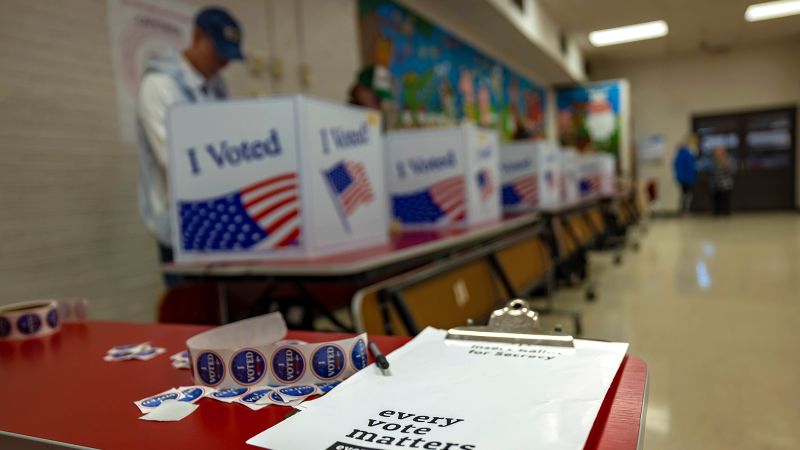The Brennan Center for Justice at New York University’s law school released a report detailing changes in election rules in battleground states for the upcoming presidential election. Some states have made it easier for voters to cast ballots, while others have implemented new obstacles. Many changes concern mail ballots, including limits on ballot drop boxes and tighter deadlines. State legislatures have been focused on remaking election rules in response to former President Trump’s claims of fraud and the impact of the Covid-19 pandemic on voter habits.
The report highlights states that have made voting more difficult since the 2020 election, such as Florida and North Carolina. In North Carolina, a new law has moved up the deadline for mail ballots to be received, affecting thousands of ballots. Additionally, a photo ID requirement will be in effect for the first time in a presidential election. Florida has implemented new regulations limiting access to ballot drop boxes and assistance for voters casting mail ballots. These changes have the potential to impact voter turnout in these states.
However, some battleground states have expanded voting options for voters. Nevada has made its universal mail balloting system permanent and improved voter access on tribal lands. Michigan now allows online registration for mail ballots and has streamlined the mail voting system. Other laws in Michigan extend early in-person voting timelines and broaden acceptable forms of identification to meet the voter ID requirement. These changes aim to make voting more accessible and convenient for voters in these states.
In states like Arizona and Georgia, the election landscape is mixed, with some measures making voting easier in certain circumstances but also imposing new requirements. Arizona added hours to in-person early voting and passed laws that facilitate voting, but has also imposed new requirements that are facing legal challenges. Georgia’s election overhaul bill has faced national scrutiny, with provisions such as drop box limits and stricter ID rules for mail voting. These changes could potentially restrict voter access in these states.
The Brennan Center’s analysis also includes “election interference” laws that could make election officials vulnerable to partisan meddling. Georgia’s overhaul of its state election board and Texas targeting Houston, a Democratic stronghold, with laws dismantling the county’s election administrator’s office are cited as examples. These laws could potentially undermine the integrity of the election process and limit access to voting for certain groups of voters. The report highlights the importance of safeguarding the election process and ensuring that every eligible voter can exercise their right to vote in a fair and accessible manner.













